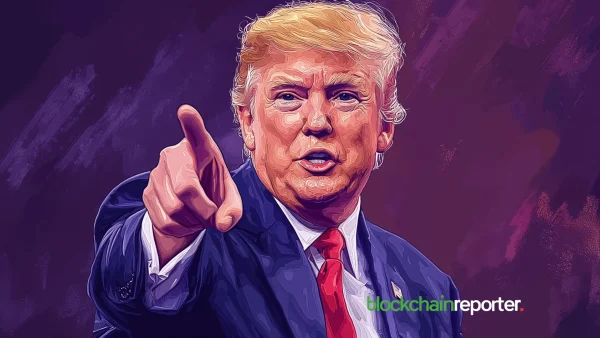
Silicon Valley Bank (SVB) was a prominent lender to tech startups in the world and was known for its support of the emerging cryptocurrency industry. However, in the wake of the recent economic downturn, the bank suffered significant losses that ultimately led to its bankruptcy. The bankruptcy of SVB was a major shock to the industry, and many crypto companies have signaled their exposure to the bank.
This, coupled with the broader market volatility, has left many questioning the future of decentralized finance and the role of traditional finance in this new era. The fallout from the bankruptcy of SVB has created a ripple effect throughout the financial industry, and its impact is still being felt.
In this article, we will explore the shifting financial landscape after these events. We will also delve into the major contributions of Vertu, a company that has emerged as a leader in the Web3 space, and its relevance in this new financial era. From its groundbreaking Web3 phone to its innovative investment strategies, Vertu has been at the forefront of the Web3 revolution. Let’s explore the significance of Vertu’s contributions and their potential to shape the future of finance.
Analysis of Silicon Valley Bank’s Bankruptcy and Cryptocurrency Market Volatility
The recent bankruptcy of Silicon Valley Bank has sent shockwaves throughout the financial world, with the impact being felt in both traditional and decentralized finance (DeFi) sectors. SVB had a reputation for being one of the most prominent lenders to tech startups, and its collapse has left numerous venture capital firms, tech startups, and crypto companies exposed.
The causes of SVB’s bankruptcy are yet to be fully understood, but reports suggest that the bank was seeking an acquisition after failing to raise sufficient capital to cover its obligations. The run on the bank that followed, with $42 billion of withdrawals initiated by clients, caused the bank to close on Friday. While it is the venture capital firms and tech startups that have been most severely affected, numerous crypto companies have also disclosed their exposure to the bank.
The impact of SVB’s bankruptcy on the traditional finance sector is significant, as it highlights the fragility of the banking system and the risk of overreliance on a single financial institution. The impact of SVB’s bankruptcy on DeFi is somewhat different. DeFi, which relies on blockchain technology to create a transparent and decentralized financial system, is designed to be resilient to such events.
However, the exposure of crypto companies to traditional financial institutions highlights the need for greater diversification and risk management within the DeFi ecosystem. In addition, the fallout from SVB’s collapse will continue to be felt, both in traditional and decentralized finance. It highlights the need for greater transparency, diversification, and risk management within the financial sector, and for the development of more robust and resilient systems.
CZ’s $1 Billion Investment and Vertu Web3 Fund
Two recent investments in the crypto market have caught the attention of investors and enthusiasts alike. Binance, one of the largest cryptocurrency exchanges in the world, announced its plans to convert $1 billion worth of Binance USD to Bitcoin, Ethereum, BNB coin, and other tokens to support the market. This investment is significant as it showcases Binance’s commitment to supporting the crypto market and its belief in the long-term potential of digital assets.
In addition to Binance’s investment, luxury mobile phone brand Vertu is going to launch its VERTU Web3 Fund in the near future. The VERTU Web3 Fund is a major endeavor from Vertu to maintain the continuous growth and development of Web3. The significance of Vertu’s investment in the Web3 industry is that it showcases the growing interest of luxury brands in digital assets and decentralized finance. It also highlights the potential of Web3 as a new industry that has the potential to transform traditional finance and offer new opportunities for investors.
Vertu’s Contribution to the Web3 Space
Vertu is a luxury mobile phone brand that produces and sells high-end, handmade mobile phones. The company was founded in 1998 and was previously owned by Nokia, a Finnish mobile phone manufacturer. Vertu is renowned for its attention to detail, premium materials, and bespoke design that cater to the high-end luxury market.
In recent years, Vertu has shown an interest in blockchain technology and its role in Web3. Vertu recently released its flagship Web3 phone, METAVERTU, in London. The introduction of METAVERTU has the potential to revolutionize both the mobile phone and Web3 industries. This device aims to integrate blockchain technology into the luxury mobile phone industry, offering a unique value proposition to its high-end customers.
The Web3 phone is the world’s first Web3 phone with an encryption core – a secure encryption chip that enables it to form an independent encryption system and encryption management cloud system. METAVERTU provides security support for the application system, ensuring the confidentiality, authenticity, integrity, and non-repudiation of information data.
This makes it an ideal tool for users looking to securely store and manage their digital assets, such as cryptocurrencies and NFTs. The phone is also capable of generating NFTs and minting them using the built-in decentralized application (dApp). This feature allows even those with little knowledge about Web3 to create their own NFTs easily, making it an ideal tool for both amateur and professional creators.
In addition, Vertu aims to build a five-dimensional ecosystem for Web3, integrating chips, smart terminals, blockchain, operating systems, and high-end services into one phone. This integration allows Web2 users to experience a seamless and smooth transition to the Web3 world. The METAVERTU also solves the security problem of digital assets, which is a big issue in the crypto world, making it a popular choice for crypto enthusiasts.
With its foray into Web3, Vertu is positioning itself as a leader in the luxury blockchain phone market. The company’s blockchain phone offers enhanced security and privacy features that are of utmost importance to the high-end luxury market. As blockchain technology gains traction in various industries, Vertu’s move towards the Web3 space could potentially be a significant opportunity for the company to further expand its market share and revenue streams.
The Importance and Future of Web3 Technology
The recent financial crisis has highlighted the need for a more transparent, decentralized, and secure financial system. The current traditional financial system has been built on a centralized model, which has resulted in a lack of transparency and trust among users. The emergence of Web3 technology has the potential to address these issues and create a more efficient and secure financial system.
Web3 technology is based on blockchain technology, which allows for transparent and decentralized transactions. This technology has the potential to eliminate intermediaries and create a more direct peer-to-peer financial system. Additionally, Web3 technology allows for the creation of dApps that can provide a wide range of financial services, from lending to insurance to asset management.
The future of finance is likely to be shaped by Web3 technology. As more people become aware of the benefits of DeFi, we can expect to see a shift toward this new model of finance. DeFi has the potential to create a more inclusive financial system, one that is accessible to anyone with an internet connection. It can also reduce the cost of financial services by eliminating intermediaries and automating processes.
Conclusion
The bankruptcy of Silicon Valley Bank and the resulting cryptocurrency market volatility highlights the fragility of the traditional financial system and the need for alternatives. While this event has had a significant impact on the crypto industry, it has also demonstrated the resilience of decentralized finance and the potential for alternative financial systems to thrive.
Additionally, the introduction of Vertu’s Web3 phone and the advancements in Web3 technology show that the future of finance is being shaped by innovative, decentralized solutions that prioritize security and privacy. The integration of encryption, blockchain, and smart contracts has the potential to revolutionize traditional finance and create a more inclusive and equitable financial system.
In light of these developments, there is a need for greater adoption and investment in Web3 technology. With increased investment, we can accelerate the development and adoption of decentralized finance solutions and ensure that more people can benefit from the security, transparency, and accessibility that Web3 offers.









